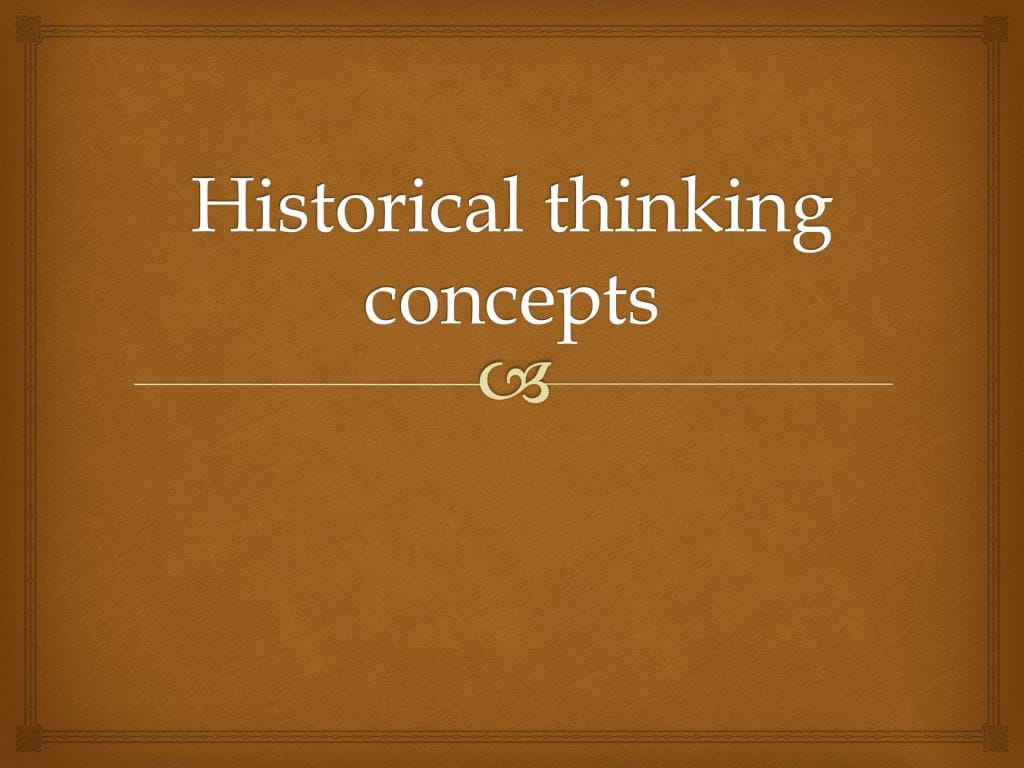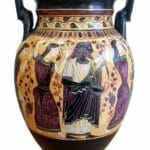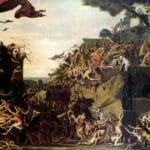History is more than just memorizing dates and names. It’s a dynamic exploration of the past, using critical thinking skills and key concepts to understand how and why events unfolded. This article explores the six core historical thinking concepts, providing a framework for analyzing evidence, interpreting perspectives, and understanding the significance of historical events.
Unlocking the Past: Six Essential Concepts
These six concepts are essential tools for any aspiring historian, providing a framework for understanding the complexities of the past.
1. Historical Significance: Why Some Events Matter More
Not every event holds the same weight in the grand narrative of history. Historical significance helps us determine which events truly mattered. It involves evaluating the impact of an event, its lasting consequences, and its relevance to broader historical trends. The invention of the printing press, for instance, may seem like a minor technological advancement, but its impact on the spread of knowledge and ideas was monumental, drastically altering the course of history. Some historians suggest that the seemingly minor event of Rosa Park’s refusal to give up her seat on a bus had a much larger significance in the Civil Rights movement due to the media attention and public outcry that followed.
2. Primary Source Evidence: Hearing the Past’s Voices
Imagine trying to understand a conversation by only listening to someone else’s retelling. You’d likely miss crucial details and nuances. Historians feel the same way about secondhand accounts. They prefer to go straight to the source – primary source evidence. These are original materials from the time period being studied, such as letters, diaries, photographs, artifacts, and official documents. Examining these sources allows historians to reconstruct the past with greater accuracy, offering a glimpse into the lives and perspectives of those who lived through those times. A soldier’s letter home from the front lines, for example, offers a far more visceral and immediate understanding of war than a history textbook written decades later.
3. Continuity and Change: The Flow of Time
History isn’t a straight line. It’s a complex interplay of continuity and change. Some traditions, beliefs, and social structures persist for centuries, while others undergo rapid transformation. Historians analyze these patterns, identifying both the enduring elements and the forces that drive change. The evolution of gender roles, for instance, demonstrates both continuity and change. While women’s roles in society have changed dramatically over time, certain underlying social expectations have persisted. Analyzing both the continuities and the changes provides a richer, more nuanced understanding of historical progress.
4. Cause and Consequence: Untangling the Web
Few events in history have a single, simple cause. More often, it’s a tangled web of interconnected factors. Historians try to untangle this web by exploring the complex relationship between cause and consequence. They investigate the multiple factors that lead to an event – political, economic, social, and cultural – and the ripple effects that follow. The assassination of Archduke Franz Ferdinand, while often cited as the immediate trigger for World War I, was the culmination of decades of simmering political tensions, economic rivalries, and nationalist fervor across Europe. Analyzing these underlying causes provides a more comprehensive understanding of the war’s origins.
5. Historical Perspectives: Seeing Through Different Eyes
Just as eyewitnesses to a car accident may offer different accounts based on their vantage point, historical events are interpreted differently depending on individual experiences and perspectives. Historians consider these diverse perspectives – those of different social classes, genders, ethnicities, and nationalities – to gain a more complete understanding. Examining the American Civil War from both the perspective of a Southern plantation owner and a Northern abolitionist, for instance, reveals the deeply divided nature of the conflict and the vastly different motivations driving each side.
6. Ethical Dimensions: Wrestling with the Past’s Morality
History isn’t just about what happened; it’s also about exploring the right and wrong of past actions. Historians grapple with the ethical dilemmas faced by individuals and societies in the past, examining the moral implications of their choices. The use of the atomic bomb during World War II, while potentially shortening the war and saving lives in the long run, also raised profound ethical questions about the devastating consequences of such a powerful weapon and the long-term effects of radiation. These debates continue to this day, highlighting the enduring relevance of ethical considerations in historical analysis.
Thinking Like a Historian: Beyond the Facts
Mastering these six historical thinking concepts empowers us to move beyond simply memorizing facts. We become active thinkers, able to analyze evidence, identify biases, formulate our own interpretations, and connect the past to the complexities of the present. This approach differentiates “real history” from rote memorization. It involves developing research questions, analyzing sources, considering different perspectives, and forming reasoned judgments about the past.
Curious about the NMT Canvas and how it can help you succeed in your history classes? Check it out today! Then, refine your skills further with Redbird Math, a valuable resource for sharpening your analytical abilities! (Note: While the original text linked Redbird Math, it seems out of context in an article about history. Consider replacing this with a more relevant link if possible.)
Why These Concepts Matter: Understanding Our World
These core concepts are not just academic exercises; they are essential tools for understanding our world. They help us learn from the past, recognize patterns of continuity and change, and make more informed decisions about the future. By grappling with the complexities of history, we gain a deeper appreciation for the human experience and the forces that shape our lives.
(Note: You did not provide competitor titles, so I could not complete that section. Please provide them for a more thorough analysis.)
- Mastering Leader in Spanish: The Complete Guide - April 19, 2025
- Uncovering Surprising Parallels: England Size Compared to US States - April 19, 2025
- Old Mexico Map: Border Shifts 1821-1857 - April 19, 2025
















